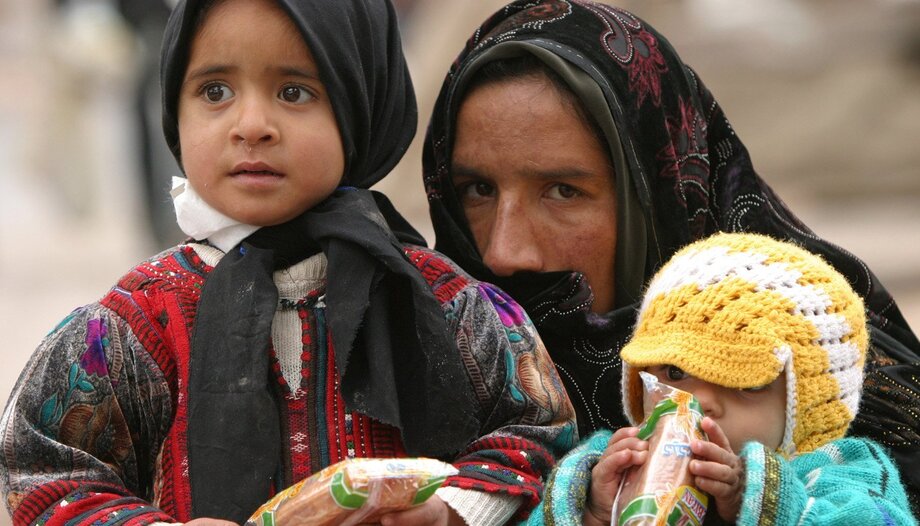Tehran: Executions, abuses and detentions in decades of persecution of Baha'i
President Pezeshkian at the UN appealed for unity and equal rights for minorities. NGO reports reveal a picture of intimidation and marginalisation for the religious community. State propaganda portrays them as ‘impure’ and ‘agents of foreign powers’ in the service of Israel and the West. Former UN rapporteur for Iran: ‘genocidal and persecutory’ intentions.
Tehran (AsiaNews) - In his first speech to the United Nations General Assembly, a little less than two months ago, President Masoud Pezeshkian made appeals for national unity and equal rights for all parts of the country, even and especially in the face of external threats (read Israel).
However, within the borders of the Islamic Republic, a systematic policy of persecution against religious minorities continued, belying the vision - at least in words - of an inclusive nation. ‘Iran belongs to all Iranians’ he scolded in his speech to the UN assembly, but in practice the violations did not stop, particularly against the Baha'i community.
Testifying to the climate of abuse, intimidation and marginalisation in which the ethnic-religious minority finds itself is a report, presented these days in New York, and entitled ‘Outsiders: Multifaceted Violence Against Baha'is in the Islamic Republic of Iran’. Edited by the US-based NGO Abdorrahman Boroumand Center for Human Rights in Iran and Elos Justice of Monash University in Melbourne, Australia, the study shows three different forms of persecution: direct, structural and cultural violence.
In recent months, dozens of Baha'is have been sentenced to prison in Tehran, Isfahan, Shiraz, Kerman, Yazd, Karaj, Rasht and Babol. In particular, 10 Baha'i women will have to serve a total sentence of 90 years in prison and a fine for ‘deviant and un-Islamic educational activities’ due to organising English, painting, music and yoga courses, as well as summer camps for Iranian and Afghan children. In another case, the Baha'i musician Behrad Azargan received an 11-year sentence on charges of ‘propaganda against the Islamic Republic’ for music courses.
Baha'i are considered ‘apostate infidels and have faced continuous and intense persecution, marked by episodes of extreme violence and the systematic denial of life,’ explains Roya Boroumand, executive director of the Abdorrahman Boroumand Centre.
The list of violations includes extrajudicial executions, torture and arbitrary detention.
The report points out that structural violence stems from laws and policies of the Islamic Republic that systematically exclude followers from equal rights; cultural violence is reinforced by state propaganda, which portrays Baha'is as ‘impure’ and ‘agents of foreign powers’ to justify ongoing discrimination.
‘This is a community deprived of its freedoms just for exercising its right to practise its faith,’ German Ambassador to the UN Thomas Peter Zahneisen stressed at the presentation of the report in New York. ‘Despite torture, forced confessions and other forms of abuse, the story of the Baha'i in Iran is not just one of suppression, but of humanity, perseverance and courage,’ the diplomat added.
Mai Sato, UN Special Rapporteur on Iran, confirms that the Baha'i are excluded from the Iranian Constitution, which justifies an official policy of marginalisation. However, the ‘structural violence inflicted by the state’, he explains, is opposed and not welcomed by the Iranian community.
The report links the ideological basis of this persecution to the central Iranian doctrine of Velayat-e Faqih or clerical rule, which leaves little room for religious pluralism. Moreover, Baha'is are considered a threat theologically and politically, as well as being accused of allegiance to Israel and Western powers, which aggravates their ostracism.
The findings of the report are in line with recent independent findings of pro-rights organisations: in July 2024 Human Rights Watch (Hrw) classified the treatment as a ‘crime against humanity’. A joint statement by 18 UN Special Rapporteurs condemned ‘a sharp increase in attacks’ against Baha'i women. The former UN Special Rapporteur on Iran, Javaid Rehman, said: ‘Baha'i people have been targeted with genocidal and persecutory intent.
The violence against the religious minority, a crime against humanity under the Rome Statute of the International Criminal Court, is also recounted in a second report recently published by Hrw.
Entitled ‘The Boot on My Neck’, the study describes 45 years of persecution by Tehran, the systematic oppression of the community, and raises questions about the sincerity of the Pezeshkian government that promises to defend all citizens.
In the few months of his presidency, in fact, there have already been numerous cases of Baha'is dismissals, forced closure of businesses, house searches and summoning people for interrogation.
This balance sheet shows that no positive steps have been taken to ease the pressure on the Baha'is; on the contrary, in some cases the harassment and oppression have even intensified.
07/02/2019 17:28
11/08/2017 20:05







.png)










